- Home
- Patricia McLinn
Left Hanging Page 2
Left Hanging Read online
Page 2
“C’mon, Scarlett.” Mike grabbed my arm. “I’ll drive Jenks’ vehicle, while you use the thumbscrews on him. Diana can come separately. We’ll get a ride back with her later.”
Before Jenks could object, we put that program into action, conveying the first part of it to Diana by gestures as we headed for Jenks’ KWMT four-wheel-drive.
I slewed around in the seat to face him. “Tell us what wasn’t on camera.”
“Not much. I started shooting right off and didn’t quit.”
“Were there other people around?”
When most people try to remember something, they stare up and to the side or close both eyes. Jenks did something I’ve seen other shooters do—he dropped his head, squinted with one eye, while opening the other wide, as if seeing everything in his memory through a camera lens.
“Couple of cowboys were heading toward where they park their trucks. Walking away, so I didn’t see faces. I noticed them because they were an odd couple—one younger and spiffed up, the other older, dustier, a bit of a limp. The committee chair and a man were going into the rodeo office. Think it was Oren Street, Landry’s partner.
“There was something else when I started shooting Thurston. Something . . .” He shook his head. “Can’t say for sure. It was way over to my left, and a bit behind. Got a feeling it was a woman.”
“Behind you? That was in Thurston’s line of sight . . .”
That hope fizzled before it was full-born. Jenks spoke its epitaph, “Thurston doesn’t see anything but the camera.”
“Why was he meeting Landry this morning?”
“Fine’s planning a special on the rodeo’s history, and he’d promised Landry he’d use the interview as the news peg.”
“I haven’t heard about a special,” Mike said. “Haeburn never said—”
“Doesn’t know. Nobody else, either. Thurston’s been pulling archival tape. That’s why he had the historical stuff ready to go. He’s tried to line up an editor without telling them what it’s for. Plans to be his own producer.”
A three-way exchange of glances brought us to a silent accord on Fine’s delusions concerning his abilities.
“Why didn’t anyone find Landry before you and Thurston?”
“A couple guys sleep on the grounds overnight, but they’re way back where the stock’s usually kept,” Jenks said. “Nobody’s around the arena.”
That reminded me: “Paycik, what’s your point about the bulls being where they were?”
“They put the stock they’ll use in pens near the arena before each night’s events, so they can get individual animals positioned quickly during competition. Afterward, they put the herd back in bigger enclosures away from the arena. Those are valuable animals, and most contractors don’t want to risk them getting banged up in close quarters.” We considered how banged up Keith Landry had gotten in close quarters. “At least that’s how they run the nightly rodeo. I’ll check if Landry’s operation did something different.”
“Why would Landry’s bulls be there at all? Shouldn’t it have been the nightly rodeo’s stock in those pens?” I asked. If those regular rodeos, held every night from May to September, were community theater, then the Fourth of July event was Broadway. “His bulls won’t be used until next weekend for the Fourth of July Rodeo.”
“Good question. I was relying on Thurston’s reporting that they were Landry’s.”
“At least some had Landry’s brand,” Jenks offered. “But like you said, it doesn’t make sense why they were there.”
“We’ll track that down. You’ll be with me, Jenks, and you—” Mike glanced at me “—and Diana work together, okay?”
I nodded back as he turned off the highway, slowing to a crawl to avoid spewing more dust. Outside the rodeo grounds’ gates, a handful of people held signs. They shook the signs when they saw the station insignia, which made them harder to read, though I gathered they accused the rodeo of cruelty to animals.
I’d seen one or two lackluster protestors outside the rodeo earlier, including a girl noticeable for a swath of short-cut blue amid otherwise long dark hair. Now, their ranks had swollen. I wondered if it was news of a death or the larger platform of the Fourth of July Rodeo that had attracted them.
None of their signs mentioned the bulls’ unfriendly behavior toward Keith Landry.
“One more thing,” Jenks said, drawing my attention from the protestors. Then he gave us a gift. Not of useful information, but of a mental picture worth savoring.
“Something not on camera. That young deputy you folks know—the one brought in to headquarters because of his work on the Redus case—he made Fine take his shoe off and turn it over as evidence, because Fine had stepped in remains.”
Jenks smiled slightly as he added, “Fine was hopping mad about wearing a sock and one of those evidence booties. Especially after he stepped in, uh, agricultural byproduct.”
ON OUR RIGHT, we passed a pen encircled by yellow police tape, with a warren of similar pens beyond. The designated pen was separated from the arena by a structure that looked like a wooden goalpost cut off above its squared-off crossbar. It resembled the entry gate at a lot of ranches I’d seen.
The road through the rodeo grounds curved to the left, then back, swinging around a large fenced rectangle segmented into four smaller rectangles with a horse or two in each. Past this fenced area, the road curved sharply to the right, heading us toward the rodeo office.
Fine—who had procured another pair of shoes, I noted with disappointment—had set up at the rodeo office, a boxy structure embellished only by a covered porch on two sides. He’d have had better light and the banner for the Fourth of July Rodeo in the shot if he’d moved forty-five degrees.
He was too involved with the camera to notice a KWMT vehicle go past as he talked. The interviewee, not the interviewer is supposed to talk. That’s a core rule. Yet, I doubted the stocky man I recognized from incessant ads for the upcoming Fourth of July event as the rodeo grounds owner would get much chance to talk. I’d done my best to ignore the ads, and now that I tried to recall his name, I dredged up only “Newt.”
More figures stood in the office’s shaded entry, but our passing angle as the road made a sharp left away from the arena didn’t allow me to identify them. As we drove on, I saw a man on a bench around the corner from Fine. His back rested against the building with a cowboy hat pulled low. He wore a shirt the same bright green as Landry had worn in Jenks’ video.
“Guy on the bench is Landry’s partner,” Jenks said. “Must be handy in his business being able to sleep any place, any time.”
“Looks like Fine’s grabbing anyone who smacks of officialdom,” Mike said.
“Good. Leaves us the interesting people. While you guys find out about the bulls, Diana and I’ll see what we get by working the human interest angle.”
Mike parked next to Diana, already removing her equipment. As a result of wheeling and dealing after the report she, Mike, and I put together on the Redus murder, she now had a camera from this century, though not this decade.
“How’d you get here before us?” Paycik demanded as we piled out. “We left the station before you.”
“Shortcuts.”
“What shortcuts? I’ve lived here most my life.”
“You haven’t ferried kids to school, sports, and other events while working full-time and running a ranch. You find faster ways or die trying.”
Mike had no answer for that.
We divided, with the guys driving to the distant pens to, as Mike said, score information on “the instruments of death.”
Diana and I struck out on foot for a flock of pickup trucks, which formed the third point, along with the office and arena, of a lopsided triangle. The sun was strong and hot, but now and then a breeze passing through predicted the cool of evenin
g.
Right off, we caught two young, local competitors arriving for the evening’s regular events. They had little to say, having never met the deceased and with no plans to compete in the Fourth of July event. “Entry’s too rich for my blood,” one said.
I popped off one last question after Diana turned off the camera, and they relaxed enough to stop looking as if their mamas had starched their skin. “If you heard something went wrong at the rodeo, who would you look at first?”
“Them crazy animal people,” the one in the black cowboy hat said.
The other one in the black cowboy hat nodded.
Next, we cornered a rodeo worker. He had a bit more to say, but little of it was understandable, since his mouth held a shortage of teeth and an abundance of chewing tobacco. I cut it short with thanks and a big smile. Mistake. He returned the smile.
Diana contained her chuckle until we were out of earshot, which didn’t take long, because another pickup was arriving, and the noise blocked anything except a near-shout. “Don’t like chaw?”
I shuddered. “The spitting’s bad enough, but I swear the smell is worse. At least we don’t have to drink it.”
“Drink it?”
“An Amazon tribe serves a fermented drink that starts when the women chew on a root and spit into containers. God knows what happens after that. But if you don’t drink, it’s considered very rude, and it’s not a good idea to be very rude to those people.”
“Have you ever—?”
“Did I mention it’s not a good idea to be rude to those people?”
“Gross.”
“Yep,” as the natives in Wyoming say.
But my heart wasn’t in grossing out Diana, because I’d spotted three more possible interview subjects—all in black cowboy hats. That made it six for six so far. What? No good guys at the rodeo?
One of the three appeared to be about the age of the two local cowboys, but had an air of confidence they’d lacked.
Another appeared closer to my age, but without the benefit of skin care or sunscreen. Likely without the benefit of a clothes washer, either. Possibly without the benefit of soap, I feared.
The third was the leader. It was even clearer in the others’ body language than it was in his, which meant he was what those Amazon tribesmen called an Honored Leader, to distinguish him from an elected official or some thug who grabbed power by might. No, they’re not always synonymous. This guy was not only an Honored Leader, he was quite attractive.
“Good evening, we’re with KWMT. We’d like to talk to you about your reaction to the death this morning of Keith Landry.”
The youngest turned and headed the opposite direction, glancing over his shoulder. Interesting.
I’d addressed the leader, but he never made eye contact, and now he melted away as if I couldn’t possibly have meant him.
Only the scruffy one stood his ground. I was right about the lack of clothes washer or soap. Ah, the glamorous life of a reporter.
“Would you care to share your reaction?” I asked.
“Sure thing.” He shifted a wad I hoped was gum deeper into his cheek, squared to the camera, and spoke as if reading a statement written by someone else. Possibly phonetically in a language he didn’t understand.
“Keith Landry was a fine man and a credit to the rodeo community. For many years he has been known far and wide for helping those less fortunate than himself. He will be sorely missed. And this here’s a tragic affair.”
He turned to me. “Want another take? I know you TV folks like them sound bites to be right. I could do it again.”
“Absolutely no need, Mr. . . I’m sorry, what is your name?” I pulled out my pad to draw attention from the still-running camera.
“Evan Watt.”
“Thank you. Had you known Keith Landry long?”
“Just on twenty years,” he said with self-importance. “Met him right here in Sherman, first year he was contractor.”
“Had you talked to him lately?”
“Sure thing. Talked to him last night.”
“Did you? What time was that?”
“’Bout ten. I was on the road, headed here—wanted to know if he needed anything right off when I got in, but he said he thought he had things covered, and to report first thing this morning. But by the time I got here, he was gone.” He shook his head.
“So, you’re an employee of Keith Landry Productions?”
His eyes shifted to the side. “Not to say a regular employee.”
I waited, letting the gravity of silence pull words out of him that might get us closer to whatever it was his eye-shift indicated he didn’t want to share.
“See, that was the thing about Keith. He’d give cowboys on the circuit a leg up. Give ’em a chance to work to put together a stake to get back in and have a chance to win. You know?”
I nodded, as if I did know.
“I’m not too proud to say I’m one as got helped. Why, even NRF champions have been known to take a helping hand from Keith Landry.” This time his eyes shifted toward the direction Mr. Tall-and-Good-looking had gone. “It’s not like I’m stove up—”
“Crippled,” came Diana’s murmur. Nice to have your cameraperson double as an interpreter.
“—and can’t rodeo no more. I was going good to start the season. But seems like the weather gets warmer, and my luck gets colder. Thought I’d get the winner’s take for sure last weekend, but just missed. If that damned bronc had had a bit of go in ’im . . . But that’s the draw, when a kid that’s still got milk teeth gets a rank one and walks away with the money.”
He spit as punctuation. I didn’t look, and I held my breath, holding onto my gum fantasy.
“I came in last night to help with the run-up to next week’s rodeo, so I’d have enough jingle in my pocket to pay my entry fee and take my ride. But that’s why this don’t make sense,” he added earnestly. “Don’t make no sense. Why would anybody do such a thing to him? He’d let a guy work in a pinch, and look at how he came through with this here rodeo. If it hadn’t a been for Keith, there wouldn’t’ve been a July Fourth rodeo this year in Sherman, that’s for sure.”
“Why do you think he was on the rodeo grounds last night?”
“Can’t say.” The eyes shifted faster and farther to the side, and stayed shifted. Now, why had that made him uncomfortable?
“Looking after his livestock, perhaps?” I suggested just to keep this going.
“Not him. Didn’t have much to do with them critters.”
“Will you still compete next weekend?”
He mumbled, “Don’t know about that, with Keith gone.”
“There’ll still be work. I understand his partner has said the rodeo will go on,” I said, although I hadn’t heard any such thing.
“’Spose I can talk to Oren.”
“Have you known Oren Street long?”
“Same as Keith. Funny how fast time goes. Oren’s girl was born right about this time of year. But that was the second year they ran the rodeo.” He shuffled his feet. “Better get goin’ . . .”
“Of course. What time was it you arrived here?”
“This morning, right behind Zane.”
I didn’t understand that last reference. Maybe Diana or Mike would. I thanked him. As he walked off, I noticed a slight limp.
I made a mental note to ask Jenks to confirm if he was the scruffy cowboy he’d seen this morning.
“You catch that stuff about why would anybody do this to him?” Diana asked as we headed toward the arena.
“Oh, yeah.” I noted Fine and his new favorite cameraman had left. “Interesting, wasn’t it, when everybody’s talking accident and— There’s another one of them. Let’s go.”
Chapter Three
THE GOOD-LOO
KING cowboy had melted only as far as the enclosures used to send off roping event competitors, giving him a view down the arena . . . and if he’d turned his head, a view of us talking with Evan Watt.
I had his profile, and a nice profile it was under the brim of his hat. He didn’t turn, but I had the sense he was aware of our approach. With one hand behind my back, I indicated to Diana to circle around to his far side, while I slowed my pace. Before I was close enough to hail him comfortably, he turned away from me, took one step before seeing Diana, then halted. That gave me time to close in and hit him with questions.
“You stuck around close enough to hear what I asked Evan Watt,” I said. “What do you think of what’s happened?”
“Nothing to think. Don’t know anything.”
“Are you a competitor? Will you enter the Fourth of July Rodeo?”
Diana looked at me over her camera, which was meant to convey something, but I didn’t try to figure out what because I was focused on him.
“’Xpect so, ma’am.”
“Not just in the nightly rodeos?” I pressed that point to be sure he would have been acquainted with Landry. A noise came from behind the camera. I ignored it.
“No, ma’am,” he said in that Western way that made me feel I was 143 years old, decrepit, and had never been very bright.
“What’s your name?”
“Grayson Zane.”
My eyebrows might have hiked of their own accord. Diana cleared her throat again, but I was focused on the subject. “Grayson Zane?”
“Yes, ma’am.”
I resisted the temptation to ask the history of that name—Zane Grey, Grayson Zane. There had to be a story. Not because I didn’t want to know, but because the faintest note of resignation sounded in his voice. He expected me to ask, so I didn’t.
“You’ve heard about the death of Keith Landry, Grayson Zane?”
“Yes, ma’am.”
“Did you know him?”
“Yes, ma’am.”
Time to move him off yes and no answers. “What is your reaction to this . . . to his death?” I’d started to say to this tragedy, but imagined him parroting back, It’s a tragedy.

_preview.jpg) Almost a Bride (Wyoming Wildflowers Book 1)
Almost a Bride (Wyoming Wildflowers Book 1)_preview.jpg) Prelude to a Wedding (The Wedding Series Book 1)
Prelude to a Wedding (The Wedding Series Book 1)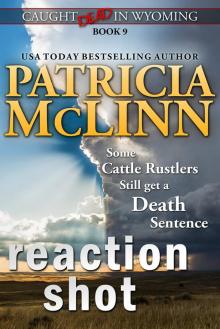 Reaction Shot (Caught Dead in Wyoming, Book 9)
Reaction Shot (Caught Dead in Wyoming, Book 9)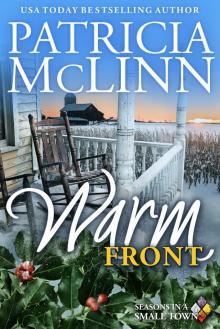 Warm Front
Warm Front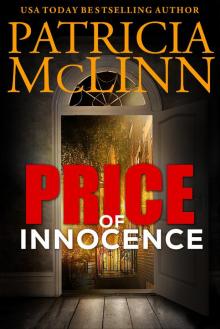 Price of Innocence
Price of Innocence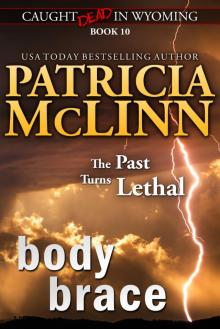 Body Brace (Caught Dead in Wyoming, Book 10)
Body Brace (Caught Dead in Wyoming, Book 10)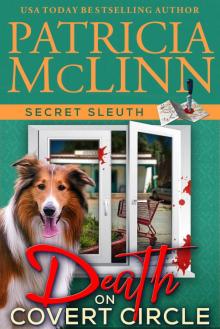 Death on Covert Circle
Death on Covert Circle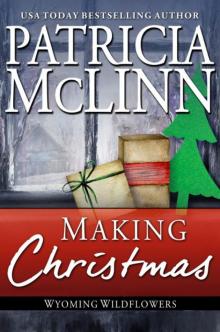 Making Christmas
Making Christmas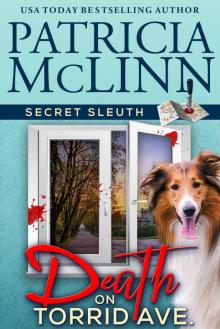 Death on Torrid Ave.
Death on Torrid Ave.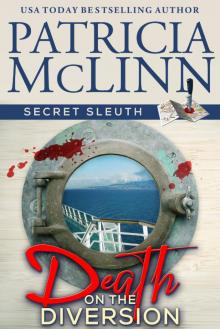 Death on the Diversion
Death on the Diversion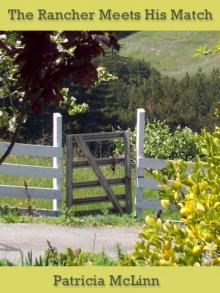 The Rancher Meets His Match
The Rancher Meets His Match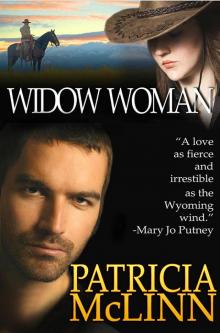 Widow Woman
Widow Woman The Runaway Bride
The Runaway Bride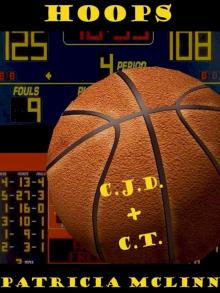 Hoops
Hoops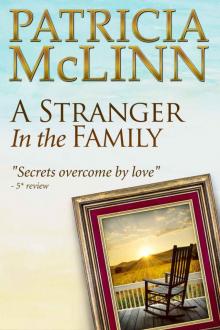 A Stranger in the Family (Book 1, Bardville, Wyoming Trilogy)
A Stranger in the Family (Book 1, Bardville, Wyoming Trilogy)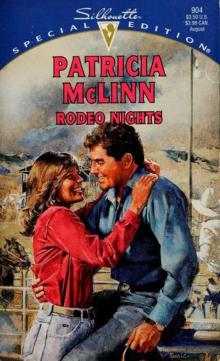 Rodeo Nights
Rodeo Nights Wedding Series Boxed Set (3 Books in 1) (The Wedding Series)
Wedding Series Boxed Set (3 Books in 1) (The Wedding Series)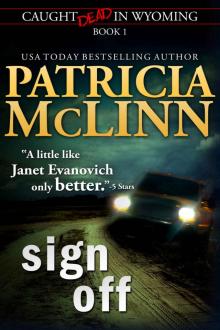 Sign Off (Caught Dead in Wyoming, Book 1)
Sign Off (Caught Dead in Wyoming, Book 1)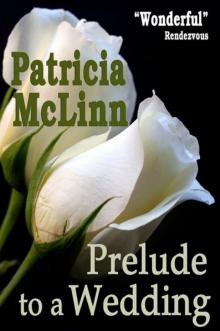 Prelude to a Wedding
Prelude to a Wedding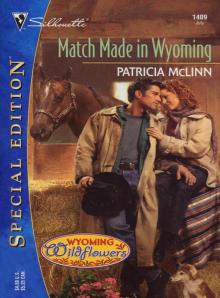 MATCH MADE IN WYOMING
MATCH MADE IN WYOMING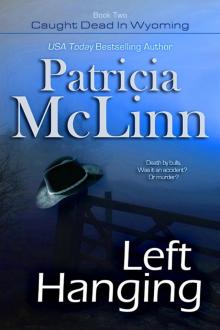 Left Hanging
Left Hanging What Are Friends For?
What Are Friends For?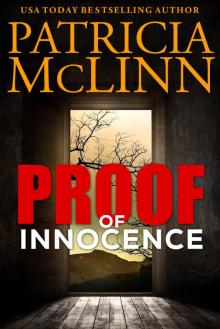 Proof of Innocence
Proof of Innocence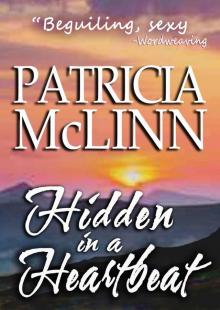 Hidden in a Heartbeat (A Place Called Home, Book 3)
Hidden in a Heartbeat (A Place Called Home, Book 3)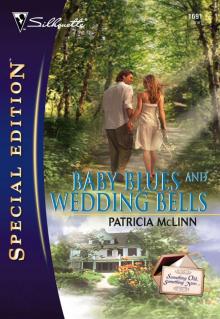 Baby Blues and Wedding Bells
Baby Blues and Wedding Bells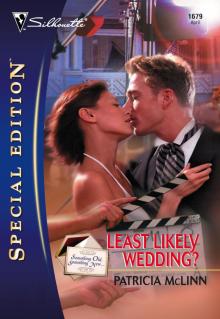 Least Likely Wedding?
Least Likely Wedding?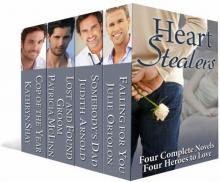 Heart Stealers
Heart Stealers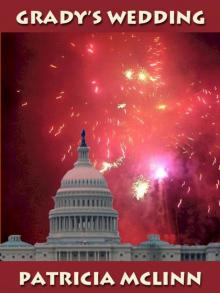 Grady's Wedding
Grady's Wedding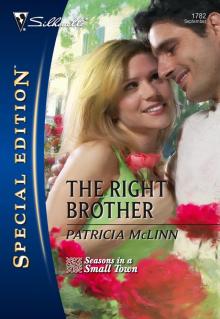 Right Brother
Right Brother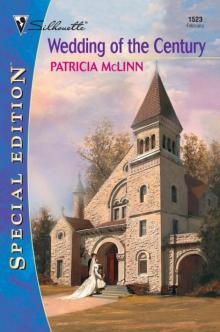 Wedding of the Century
Wedding of the Century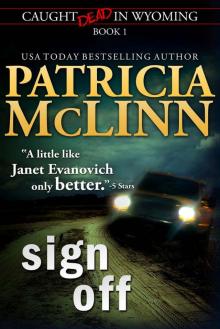 Sign Off
Sign Off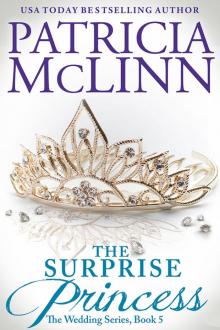 The Surprise Princess
The Surprise Princess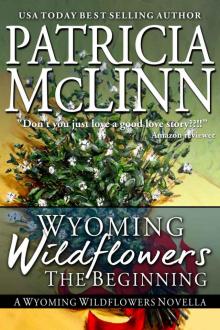 Wyoming Wildflowers: The Beginning
Wyoming Wildflowers: The Beginning